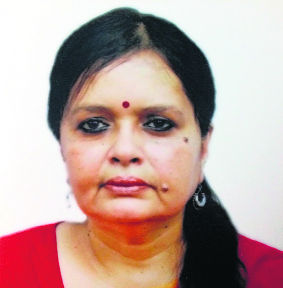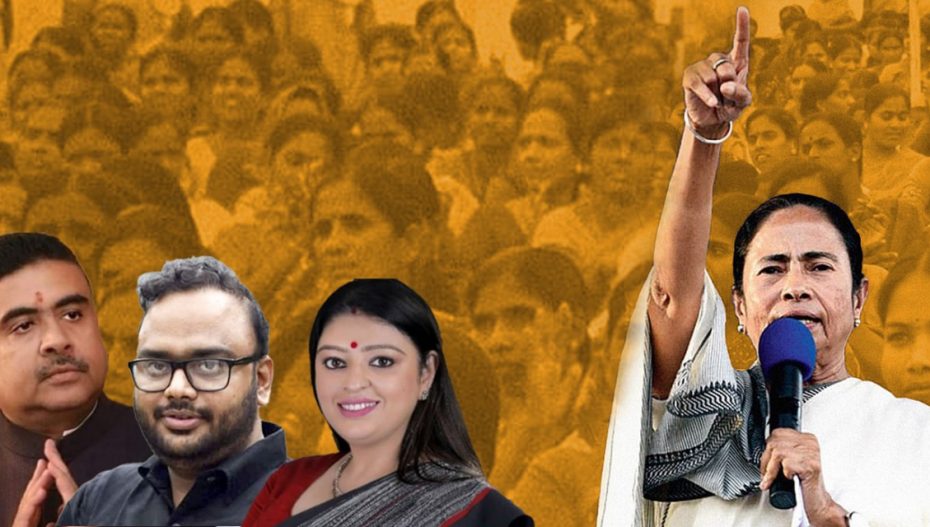Sharad Pawar, the Nationalist Congress Party president, hammered home unadorned truths to the Congress, once his abode, in his latest interview to a Marathi news channel. Pawar, who evokes homegrown imagery to make a political point, compared the Congress to Uttar Pradesh’s zamindars of yore, feudal lords who owned boundless expanses of land, most of which they lost once the land ceiling legislation was enforced and their principalities were parcelled out.
Their political dominance and social standing diminished proportionately to the loss of economic power.
Pawar said there was a time when the Congress ruled from Kashmir to Kanyakumari but no longer. He counselled the Grand Old Party’s leadership to accept this reality and reach out to other Opposition parties.
He could sermonise with a degree of authority because against all odds, he managed to retain his political real estate in Maharashtra and forge an almost impossible ruling coalition of the Shiv Sena, Congress and the NCP in India’s premier industrial state.
Pawar didn’t say that doing business with the Opposition was the sine qua non for the Congress’s very survival in the changed scenario, but that is how it stands. The change does not necessarily mean that the Congress can hope to become the fulcrum of an Opposition coalition, much less lead one, against the BJP by the time the next Lok Sabha elections come.
Is the reality finally dawning upon the Congress’s first family that continues to dawdle over appointing a full-time party president, a senapati to lead the soldiers in the battles ahead?
Against this backdrop, an Assembly by-election in West Bengal could portend bigger signals for the future of the Opposition.
Mamata Banerjee, the Trinamool Congress Party (TMC) chief, is contesting a by-poll from Bhowanipore — pronounced Bhabanipur colloquially — to retain her position as the chief minister. Mamata lost her own seat from Nandigram to the BJP’s strongman, Suvendu Adhikari, in the last Bengal elections. She is back to Bhowanipore which she won twice, in a by-poll in 2011 and in 2016. It’s her comfort zone.
The BJP, that has not recovered from the drubbing it got in May 2021, is resolutely making a fight of Bhowanipore and fielded Priyanka Tibrewal, a party functionary who was raised in Kolkata. The CPM, undaunted by the recent electoral reverses, has also put up a candidate, Srijeep Biswas.
Interestingly, the Congress opted out of the joust. The move could possibly mark a change of attitude towards the TMC and a severing of its alliance with the Left Front. Nothing is heard of the Indian Secular Front, headed by a Bengal cleric, Abbas Siddiqui, who was part of the Congress-Left axis in the Assembly polls.
Conventionally, by-polls favour a ruling party — with exceptions of course. However, even after accepting this received wisdom, political parties always have a shot at by-elections, if only to rejuvenate their workers and local leaders and demonstrate that they are alive and kicking.
So, what does the Congress’s decision signify? That it wishes to partner Mamata in the future elections in West Bengal as a junior partner? Or is it ready to endorse and accept her leadership of an Opposition front against the BJP in 2024?
If it is the latter message, it spells a fundamental shift in its stance towards the Opposition spectrum although it is unclear whether the move was debated in a larger group or it’s a one-off gesture. Does it presage a softening of attitude towards the Samajwadi Party-Rashtriya Lok Dal (SP-RLD) combine before the Uttar Pradesh elections?
So far, Mamata has demonstrated her ability and skills in challenging the BJP on its own terms, albeit on her limited turf. She won more seats in the Bengal elections than in 2016, defying the BJP in a high-decibel, resource-rich campaign that was more aggressive than anything the BJP had put up in its recent history.
Post-elections, she is doing to the BJP what the latter does to the Congress in the other states; poach on its legislators and wean them away in small groups. Mamata is corroding the BJP’s innards that was largely made up of defectors from the TMC and the LF.
On a larger canvas, can Mamata possibly reprise the Bengal tactics and weaken the BJP? She needs the Congress and a host of other regional parties, who like her, are directly pitted against the BJP as say, in UP, Bihar and Odisha.
UP holds the key to the Opposition’s future. Although a very distant prospect in present-day circumstances, if there’s a major upset in Lucknow and the BJP loses to the SP-RLD, the Opposition dynamics will alter correspondingly. But the SP leader, Akhilesh Yadav is no Mamata; he has not exhibited her killer instincts to take on the BJP. Akhilesh has been reactive so far.
What’s however certain is that events in 2021 and 2022 are set to reset national politics and the cues are emerging from the states.













